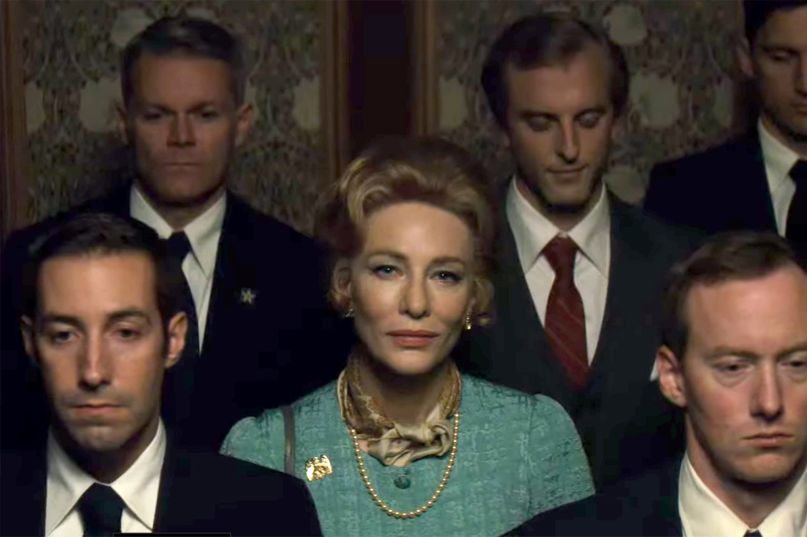Long a rallying cry for feminism, “the personal is political” spoke to how women’s own experiences often fueled their activism. The Hulu drama Mrs. America’s second episode draws from that theme for feminist icon Gloria Steinem, but also for “protagonist” and anti-feminist/Equal Rights Amendment Opponent Phyllis Schlafly.
For Schlafly, the show depicts a woman frustrated at her inability to move ahead in the conservative party, and at the gender inequities in her personal and professional relationships. Ironically though, in order to advance her own career, she turns her personal frustration into a manifesto that seeks to eviscerate the women’s movement.

As the series develops, Schlafly is shown to be the ultimate con-artist. Decades before Donald Trump “fake news-ed” his way into the presidency, Schlafly filled her TV appearances and literature with baseless and sensational “facts” that were compelling but often bogus. She overinflates her credentials and takes credit for every victory whether warranted or not. Sound familiar? In a memorable scene, she even tells her husband that she was invited to apply to Harvard while she was in grad school, which he quickly points out was not possible since it wasn’t co-ed at that time.
I was most looking forward to seeing Gloria Steinem’s episode and it was indeed fascinating to watch how her passion for abortion rights stemmed from her personal history and how deftly she navigated the internal politics of the feminist movement along with the more global political movement. And I thoroughly enjoyed seeing her launch Ms. magazine, with all of its successes, trials and tribulations. As we see in several scenes, even within her own feminist publication she faced sexism from men trying to control the narrative.
However, an extensive focus on Steinem’s personal life, along with further screen time for Schlafly, left me wanting more from the episode. It is also disappointing to see the show so far portraying feminists as underestimating ERA opposition. Although in this episode, it also showed that Schlafly underestimated her opponents, with her quip that “no one likes a feminist” juxtaposed with scenes of Steinem successfully launching Ms. magazine and inspiring young women everywhere she goes.
The series also focuses on Schlafly and her “from the kitchen” grassroots movement as all-powerful in stalling progress on the ERA. While undoubtedly influential, this narrative ignores the big-business motivators behind the anti-ERA movement, including corporations that would no longer be able to charge women more money, such as insurance companies. Ultimately, those vestiges of corporate male power against the ERA contributed to the momentum shift for ratification as much as Schlafly and her infamous baked goods.
As the show notes, Schlafly became a “spokesperson for chauvinism” and for women who feared losing the protection of men. Her rise to that position is important to know, but now that it has been documented in the first two episodes, I hope to see more focus on the sheroes such as Steinem and Shirley Chisholm (the focus of the third episode) and exploration on how their personal experiences turned into a political movement that revolutionized our society. They deserve that screen time.
Kimberly Hayes is the press secretary for the National Organization for Women.